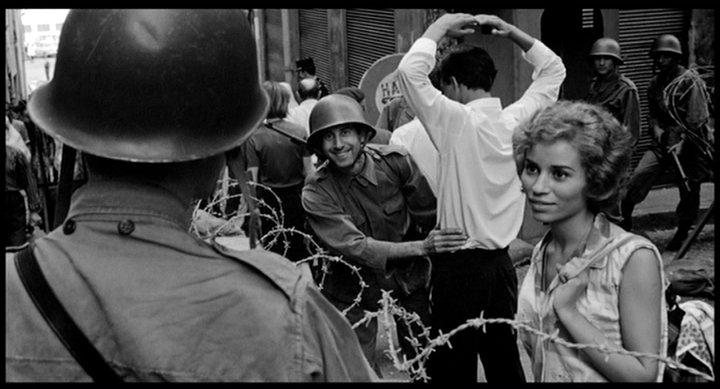It was a great experience watching two documentaries with two varying styles back to back. When we watched “Miss Representation” a lot of people critiqued the lack of variety in the women interviewed for the film. In “The House I Live In” Jarecki interviewed such a wide variety of people of differences races, ages, genders and who were in various different positions within the process of the jailing system.
Jarecki interviewed professors, a lawyer, a judge, a jail security guard, female drug dealer, inmates, family members of the inmates, etc. This gave the film such a well rounded view of the problem.
This film reminded me of “The Battle of Algiers” and the inability to pin point a ‘bad guy.’ Jarecki’s film did the same thing by interviewing such a variety of people. It makes it impossible to pin point who the enemy or ‘bad guy’ is, so the viewer cannot blame one person. Being unable to place blame encourages people to join the cause and fight against the problem addressed in the film. This brings me back to the idea of a film’s intention.
I felt the intention of the film was to make people aware of the issue. The narrator said that he interviewed a number of people and a majority of them did not know the “drug war” was still going on. If society isn’t aware of the problem, no change will ever come.

I agree with you. Having such a wide range of interviewees was particularly helpful in demonstrating just how serious and widespread this issue is. I also was surprised and shocked by the people who either didn’t know what the War on Drugs was, or that it was something of the past. Clearly this is not the case. If people do think that it is no longer a problem, then there is a bigger issue at hand, other than the fact that the War on Drugs exists.